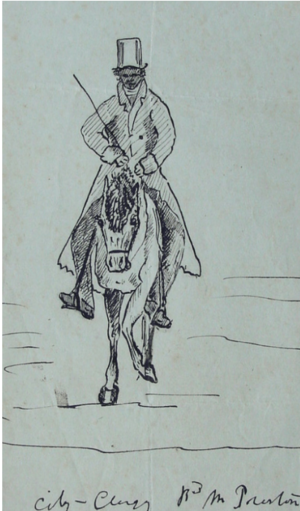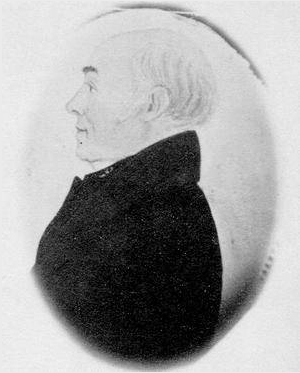Richard Preston (clergyman) facts for kids
Richard Preston (born around 1791 – died July 16, 1861) was a very important religious leader and someone who fought against slavery. He bravely escaped from slavery in Virginia. After gaining his freedom, he became a key leader for the African Nova Scotian community. He also played a big part in the worldwide fight to end slavery. He helped start the Cornwallis Street Baptist Church, the African Abolition Society, and the African Baptist Association.
Contents
Richard Preston's Early Life and Freedom
We don't know much about Richard Preston's very early life. People believe he was born into slavery in Virginia. But he managed to get an education and save enough money to buy his own freedom in 1816. This was a huge achievement!
A Journey to Find His Mother
After becoming free, Richard Preston traveled to Nova Scotia. He was searching for his mother. She had escaped slavery during the War of 1812. About 2,000 African Americans found freedom by going to the British during that war. They settled in Nova Scotia and were known as the War of 1812 Refugees.
Richard Preston was incredibly happy to find his mother alive and free in a community called Preston, Nova Scotia. He hadn't seen her for many years. He was so touched by this reunion that he decided to take the name of her community, "Preston," as his own last name.
His Personality and Skills
Richard Preston was known for being a very good speaker. He could give powerful speeches that moved people. He also had a great sense of humor. These qualities helped him connect with many people and become a respected leader.
Becoming a Community and Church Leader
Richard Preston was guided by another Baptist minister named John Burton. With this help, Preston grew to be one of the most important church and community leaders in Nova Scotia. He helped set up 11 Baptist churches all over the province. This shows how dedicated he was to building strong communities.
Training in England and Fighting Slavery
Preston went to England to train as a minister. While there, he met many important people who were part of the abolitionist movement. This was a movement working to end slavery. These leaders helped get the Slavery Abolition Act passed by the British Parliament in 1833. This law made slavery illegal in most of the British Empire.
When Preston returned to Nova Scotia, he became the president of the abolitionist movement in Halifax. He worked hard to create a school for Black students. His efforts led to an older Church of England school, which was started in 1785, being fixed up and used for Black students.
Richard Preston's Important Legacy
Richard Preston left a lasting mark on Nova Scotia. He founded many churches across the province, which became centers for community life and the fight for freedom.
National Recognition
In 2005, Parks Canada recognized Richard Preston as a person of National Historic Significance. This means he is considered a very important figure in Canadian history. He was honored for his strong religious leadership, his work in building communities, and his big contributions to the fight against slavery.
Community Names
You might think that East Preston and North Preston, Nova Scotia, were named after him. But it's actually the other way around! These communities were already there, and they inspired Richard Preston to take their name as his own.
See also
 | Roy Wilkins |
 | John Lewis |
 | Linda Carol Brown |



